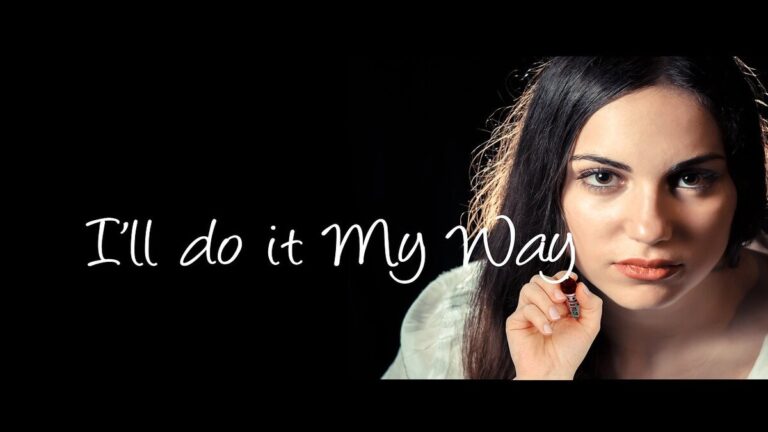Train yourself to be less impulsive : 6 effective tips

Being impulsive means such a moment when you do not have control over yourself at all. At that time you yourself do not know what you are going to do. Which can prove to be very harmful for you. Your good relationship can break or you can even lose your job if you are not able to control your impulsive behavior.
Due to impulsive behavior, you would have hurt those people whom you never wanted to see sad. Everything can be fine if you control yourself. But main problem is that due to impulsive behavior you do not have control over yourself. If you have conquered yourself, then understand that you have conquered the world.
Impulsive behavior can be controlled if you try a little. There are many techniques to control impulsive behavior. We are going to tell some natural techniques if these are not effective on you then, You can take the suggestion of an expert doctor. You will need practice to control impulsive behavior in a natural way.
Get enough sleep
The root cause of all problems is lack of sleep. Everyone knows this, yet they sleep less and when problems arise, they start searching for experts. Then take suggestions from people what to do and what not to do. Make sure you complete your 7 hours of sleep, most of your problems will end here. Due to complete sleep, there is no irritability and the mind remains calm.
Avoid alcohol and drugs
Taking alcohol and drugs also makes impulsive. These things have an effect on the mind due to which anger comes quickly. If you have a habit of these things, then you should control it. If you want, you can take energy drink instead of alcohol. Energy drink will also be good for your health. Substance abuse can impair impulse control, so it’s best to avoid using them.
Use positive self-talk
You should keep an eye on what you talk to yourself. Keep positive thinking about yourself. Don’t criticize yourself. The more you think positively about yourself, the more you will get positive energy and you will not be impulsive. Before seeing the shortcomings in yourself, see the goodness. If you think negatively then there will be irritation and you will become more impulsive. So, avoid it.
Take deep breaths
Deep breathing is a great way to refresh yourself. Taking deep breaths calms the mind. When you feel that you are being impulsive, then take a deep breath. Then you will feel energetic and will also avoid being impulsive. This is very effective, do try it once.
Seek support
Talking to a therapist or counselor can help you better understand and manage your impulses. Joining a support group can also provide you with a sense of community and accountability.
Use cognitive behavioral therapy (CBT) techniques
CBT can help you identify and change negative thought patterns and behaviors that contribute to impulsivity.Cognitive behavioral therapy (CBT) is a form of psychotherapy that focuses on the relationship between thoughts, feelings, and behaviors. It is based on the idea that negative thoughts and emotions can lead to maladaptive behaviors, and that by changing these thoughts and emotions, one can change their behavior
Conclusion
Impulsivity is a common challenge, but it can be managed with the right strategies. By practicing mindfulness, taking deep breaths, using positive self-talk, planning ahead, getting enough sleep, using CBT techniques, delaying gratification, using positive reinforcement, seeking support, getting regular exercise, and avoiding alcohol and drugs, you can improve your impulse control and make better decisions. Remember to be patient with yourself and give yourself time to see the results, it takes time and practice to change habits.
FAQS
Q: Why should I train myself to be less impulsive?
Training yourself to be less impulsive can have several benefits. It can help you make better decisions, improve your self-control, and reduce the chances of making impulsive and regrettable choices. It can also lead to healthier relationships, better financial management, and improved overall well-being.
Q: How can I recognize impulsive behavior?
Impulsive behavior is often characterized by acting without thinking about the consequences, making quick decisions without considering alternatives, and being easily swayed by immediate desires or emotions. Some common signs of impulsive behavior include spontaneous actions, impulsive buying or spending, interrupting others, and difficulty in delaying gratification.
Q: What are some strategies for reducing impulsivity?
Here are a few strategies that can help you reduce impulsivity:
- Pause and breathe: When faced with a decision or impulse, take a moment to pause, take a deep breath, and give yourself time to reflect before acting.
- Identify triggers: Pay attention to the situations or emotions that tend to trigger impulsive behavior. By recognizing these triggers, you can be more prepared to handle them.
- Delay gratification: Practice delaying immediate rewards or impulsive actions. Start small, gradually increasing the time you wait before giving in to impulses.
- Consider alternatives: Instead of acting on your initial impulse, explore alternative options and think about the potential outcomes. This can help you make more informed decisions.
- Seek support: Share your goals with a trusted friend, family member, or therapist who can provide guidance, accountability, and support as you work on reducing impulsivity.
How can mindfulness help with impulsivity?
Mindfulness can be a valuable tool in reducing impulsivity. By practicing mindfulness, you can develop a greater awareness of your thoughts, emotions, and impulses in the present moment. This increased awareness allows you to recognize impulsive urges as they arise, giving you the choice to respond intentionally rather than react impulsively. Mindfulness techniques such as meditation, deep breathing exercises, and body scans can help cultivate this awareness and promote self-control.
Q: Are there any specific activities or exercises I can try to reduce impulsivity?
Yes, here are a few activities and exercises that can help reduce impulsivity:
- Meditation: Regular meditation practice can improve self-awareness, focus, and impulse control. Start with short sessions and gradually increase the duration over time.
- Journaling: Write down your impulsive thoughts and actions in a journal. Reflecting on them can help you gain insight into your patterns and triggers, enabling you to develop alternative responses.
- Cognitive restructuring: Challenge impulsive thoughts and beliefs by questioning their validity and considering alternative perspectives. This can help you develop a more balanced and thoughtful approach.
- Role-playing: Imagine or act out situations where you typically act impulsively. Practice responding in a more controlled and thoughtful manner to reinforce new behavioral patterns.
- Engage in structured activities: Engaging in activities that require focus and structure, such as puzzles, painting, or playing a musical instrument, can help redirect impulsive energy into productive channels.
Q: How long does it take to become less impulsive?
The time it takes to become less impulsive can vary from person to person. It depends on factors such as the severity of impulsivity, individual motivation, consistency of practice, and the effectiveness of the strategies employed. It’s important to remember that reducing impulsivity is a gradual process that requires ongoing effort and self-reflection. With consistent practice and patience, you can see positive changes over time.
Q: What if I have underlying mental health issues contributing to impulsivity?
If you suspect that underlying mental health issues are contributing to your impulsivity,








One Comment
Comments are closed.